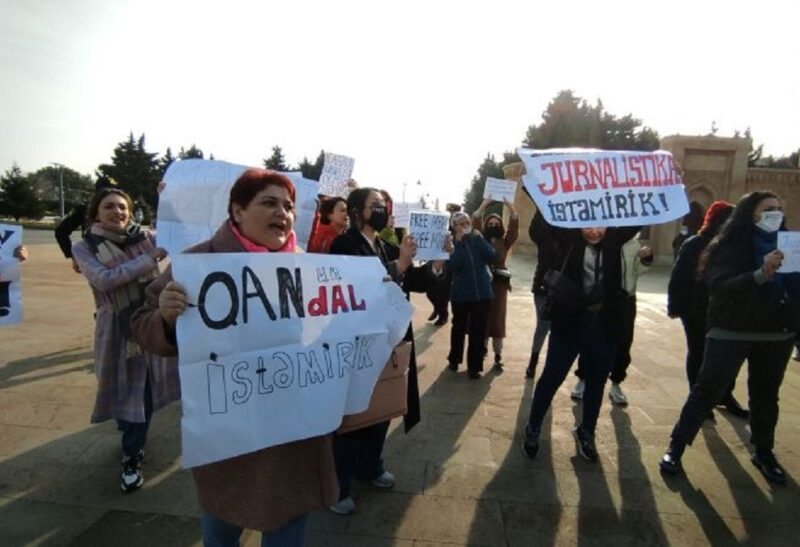On the occasion of his father’s birthday, Ilham Aliyev made several remarks about his father that, in my opinion, are in need of examination and clarification.
In asserting that Heydar Aliyev could have diverted the country from the Karabakh conflict had he been in power, Ilham Aliyev made not only a contentious argument, but one with little logic:
First of all
, in politics and in history alike, use of the conditional is worth little to nothing. Arbitrarily commenting on the past and the ‘could haves’, ‘would haves’ and ‘should haves’ is equatable to the (Russian) saying: “Had I been born a king, I’d never have been born a beggar.” What’s the use in discussing the possibilities of the past? Here, one must suppose that Ilham’s discussion of his father’s abilities was meant to inflate the cult of personality around him, rather than share historical fact.
Second,
separatist tendencies and aspirations that appeared towards and after the fall of the Soviet Union, especially that of the Armenians, can not be connected with the authority of any one leader.
Indeed, it was widely understood even by the Soviet government that separatist tendencies would be almost impossible to control in the event of their flaring up: Soviet archive resources have shown that scenarios of ethnic revolt and discord in Ukraine, Georgia, Moldova, Azerbaijan and in the Baltic states had already been studied by the Party and state security forces even before Stalin’s time.
The Bolsheviks Understood
The Bolsheviks understood that the forceful unification of such a heterogenous public under the leadership of Russia was fraught with the challenge of centrifugal forces. For this reason, it was thought that the threat of tearing away ethnically – diverse pieces of territory from individual republics would serve as a bulwark to the resurgence of nationalist sentiment.
Such tactics were used in attempts to prevent Ukraine, the Baltic States and Georgia from leaving the USSR, without regard for the power and authority of their then – leaders. It is worth nothing that these leaders were no less acclaimed than Heydar Aliyev. And it is highly unlikely that he, single – handedly, would have been able to put an end to the chaos brought about by nationalist aspirations.
Heydar Aliyev, without a doubt, made his mark on the history of modern Azerbaijan as an extraordinary leader, gifted with the political ability to enact change and transformation. He skillfully glued together the foundation of the Azerbaijani government and united civil society during a peak of conflict. However, much of this was accomplished at the expense of the difficult and demanding concessions of Armenia.
Aksakals (wise-men) Singing Eulogies
Alivev was able to set the groundwork for the development of the oil and gas sectors, as well as other related industries. Objectively speaking, he left behind him a rather impressive portfolio of ‘beginnings.’ But when the son speaks of his father’s accomplishments, it not only belittles the merits and services of Heydar Aliyev to Azerbaijan, but turns both the man and his deeds into a caricature, brings doubt to his name and goes flatly against norms of modesty and decency.
Can it be that in Azerbaijan, formerly respected wise – men are now willing to sell their respect and eulogies for a small price to the “great Azerbaijani?” We must suppose so. But this should not come as a surprise, given that any European ex – President seems to be willing to do the same for a few gas – dollars, even if his only acquaintance with the man was a rushed meeting in the hallway, or a brief handshake.
Not Mammad Amin Rasulzad, but Heydar Aliyev?!
On the birthday of a politician of such importance, it has been somehow accepted by society at large that, for that day at least, we should disregard the bad. But I hope that the ruling Aliyevs and their portraitists will pardon me when I say that the scales of history have been most negatively affected by Heydar Aliyev’s reign. A number of generations of Azerbaijanis have had their opportunities limited by corruption and by local and systematic trauma throughout the years of rule of the father, the son and the holy – ghost.
Pointing to his father as the Founder of an independent Azerbaijan, Ilham Aliyev shows a rather large degree of disrespect to the country he rules: to such a title there are but three pretenders: Mammad Amin Rasulzade, Abdulfaz Elchibey and perhaps even Ayaz Mutallibov.
The Founder of (Corrupt) Azerbaijan
If one can call Heydar Aliyev the founder of Azerbaijan, then it’s only in the context of an Azerbaijan ruled by a mafia and a system which strives to maintain economic and natural resources in the hands of a select few.
As is generally accepted to mention and note in publications, my personal opinion might differ from the officially sanctioned one. But I insist on my right to express it as an observer and witness in front of the court of History of yesterday, today and, I hope, tomorrow.
This article reflects the opinion of the author and may not necessarily reflect the opinion of MeydanTV.



